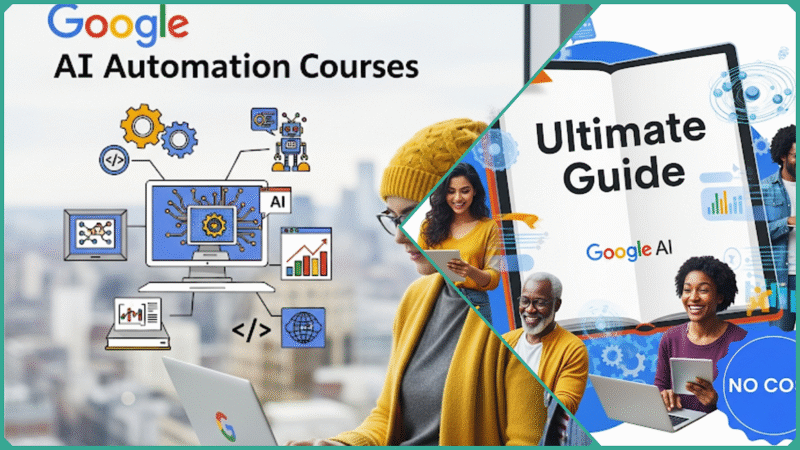Alison Online Course Platform vs. Other Top Providers Review
Estimated reading time: 15 minutes
Online learning has become an essential bridge for career changers, professionals seeking to upskill, students augmenting their education, and hobbyists exploring new skills in today’s fast-evolving job market. The surge in demand for accessible and flexible learning solutions has given rise to a competitive landscape of online course platforms. Among these platforms, Alison particularly stands out by providing completely free access to an extensive and diverse range of courses that come with certificates upon completion.
This unique offering allows Alison to distinguish itself significantly in the online learning space, especially when compared to well-established and widely recognized paid platforms such as Coursera, Udemy, and edX. By granting learners the opportunity to gain valuable certifications without any cost, Alison positions itself as an accessible and attractive alternative for those seeking quality education without financial barriers.

This post offers a detailed comparison between Alison and several other leading online education providers to help you make an informed decision. It carefully evaluates key factors, including cost, course quality, accreditation, and overall user experience. This is particularly useful if you are seeking to acquire credible skills and certifications that are closely aligned with your career goals, all while managing your budget effectively and avoiding high expenses.
Understanding Key Concepts in Online Course Platforms
Online course platforms have significantly transformed the way individuals acquire knowledge by offering convenient access to education remotely via websites or mobile applications. These digital learning environments provide a wide variety of courses, ranging from brief, skill-focused lessons to extensive professional certification programs and even fully accredited academic degrees.
To make the most informed decisions when exploring these options, it is crucial to grasp several fundamental concepts that shape and influence the overall online learning experience:
Free vs. Paid Courses
Many online learning platforms offer a variety of free courses, giving learners the opportunity to explore new skills and subjects without any initial financial commitment. These free courses are especially useful for those who want to get a feel for a topic or test their interest before investing more time and money.
However, the majority of platforms charge fees when it comes to obtaining official certificates of completion, accessing premium course materials, or unlocking extra features like graded assignments, personalized mentoring, or interactive learning tools.
Being aware of these distinctions is crucial for learners to effectively plan their budgets and accurately evaluate the true costs associated with obtaining certification compared to simply consuming free content without official recognition.
Certificates and Accreditation
Certificates that are awarded upon the successful completion of a course can vary significantly in terms of how they are viewed and valued by employers across different industries. Some online learning platforms provide informal digital badges or certificates that simply indicate that a learner has finished the course, but these often lack formal recognition or validation from established institutions.
On the other hand, some courses offer accredited certificates, which are frequently supported or endorsed by reputable universities, professional organizations, or industry bodies. These accredited certificates tend to carry much greater significance and credibility when it comes to hiring decisions, career advancement, or professional promotion, making them more valuable for learners seeking to enhance their resumes or professional profiles.
Self-Paced Learning
A highly popular and valuable feature that provides learners with the freedom and flexibility to progress through the course material at their own pace and on their schedule. This type of learning is especially crucial for working professionals, busy students, or anyone who is balancing multiple personal and professional commitments simultaneously.
Self-paced courses allow learners to dedicate extra time to more challenging or complex topics that require deeper understanding, while also enabling them to move more quickly through content they are already familiar with, creating a customized and effective learning experience tailored to individual needs.
Course Quality and Structure
Good courses are carefully designed with well-thought-out instructional methods, created by expert content developers who have a deep understanding of the subject matter. These courses also include various user engagement features such as interactive quizzes, meaningful assignments, and opportunities for peer interaction and collaboration.
High-quality courses do more than just convey information; they actively promote knowledge retention and encourage the practical application of skills, which significantly enhances overall learning outcomes and ensures that learners gain valuable, usable expertise.
Career Development Tools
Beyond the essential core education, many platforms offer a wide range of additional features such as resume builders, comprehensive career assessments, various aptitude tests, and dedicated job placement support services. These valuable tools are designed specifically for users who are eager to transform their newly acquired skills into real and meaningful career advancement opportunities.
By providing personalized guidance and a wealth of tailored resources, these platforms help individuals align their learning experiences with their unique professional goals and aspirations, ultimately supporting their journey toward successful employment and long-term career growth.
In Summary
Mastering these fundamental concepts empowers learners to make well-informed decisions when selecting platforms and courses that best align with their unique learning preferences, individual career ambitions, and available budget. This thoughtful approach ensures a far more productive, engaging, and ultimately rewarding online education experience that meets their personal and professional goals.
Comparative Overview: Alison vs Coursera, Udemy, and edX
Here is a detailed comparative overview of Alison as compared to Coursera, Udemy, and edX, focusing on the key features that are most important for learners who are evaluating and deciding between various online course platforms:
| Feature/Platform | Alison | Coursera | Udemy | edX |
|---|---|---|---|---|
| Cost | Free to enroll; Certificates $22-$69; Subscription ~€7.99/month | Free courses available; Certificates $39–$79; Degrees costly $15k+ | Paid courses vary widely, often discounted | Many audit free; Certificates $50-$300 per course |
| Course Quality | Courses created by Subject Matter Experts (SMEs), regularly updated; generally more basic and linear | University & company-created courses; highly rated with ~4.7/5 average | Wide variety of courses; quality varies significantly by instructor | University-level courses; in-depth, rigorous content |
| Certification | Accredited Continuing Professional Development (CPD) certificates; lifetime validity | Professional certificates, degrees, and Credly badges | Completion certificates, less formalized | Verified certificates; university credit options |
| Learning Experience | Self-paced; simple interface; ads shown on free courses | Self-paced; high-quality videos; some peer review delays | Self-paced; preview available; active Q&A forums | Self-paced; structured coursework; in-depth, academic approach |
| Additional Features | Career tools: resume builder, personality assessments | Hands-on projects; professional certificate programs | Interactive quizzes, assignments, and user ratings | Star rating system, audit options, and university instructors |
| Strengths | Affordable certificates; access to free courses for skill-building | Career-aligned credentials; partnerships with leading universities | Flexible, diverse course offerings; good for general knowledge | Academic rigor; pathway to formal degrees |
| Limitations | Ads can be distracting; less gamified and interactive learning | Some courses are costly; enrollment is sometimes inflexible | Quality inconsistency; no formal accreditation | Some courses require payment; engagement varies by course |
Alison in Focus: Strengths and Concerns
Alison offers over 5,000 courses across various fields with no charge for course access, making it one of the largest free online empowerment platforms globally. Its courses are mainly designed for job-applicable skill-building, featuring recognized CPD (Continuing Professional Development) certificates that have lifetime validity. The platform also provides career development tools like resume builders and aptitude assessments, which are rare on other platforms.
A key advantage is affordability. Alison’s subscriptions are much cheaper than Coursera or edX certificate fees. This makes Alison attractive to job seekers and professionals on a budget, aiming for quick, practical skills without large investments.
However, some users note that Alison’s courses tend to be more basic and linear, lacking the gamification and interactive depth found elsewhere. The platform displays ads in its free version, which some find distracting during learning. Additionally, all course materials are primarily video-based, which may not suit learners who prefer text-based content.
Coursera: University-Backed with Professional Credibility
Coursera partners with leading universities like Stanford and companies like Google to offer a broad spectrum of courses, specializations, and degree programs. Its professional certificates and degrees often carry industry recognition, with many courses offering credible accreditation and pathways to college credit.
The platform focuses on evidence-based teaching with high production quality and learner outcomes. Many users report positive career impacts from professional development courses, with about 87% citing promotions or career changes after participation.
The flipped side of this approach includes considerably higher costs—certificates, specialized programs, and advanced degrees often come with significant fees that can add up quickly. Additionally, some courses require rigid enrollment periods, which may limit flexibility for learners. Furthermore, peer review assignments, while valuable for feedback, can sometimes slow down overall progress due to the time needed for evaluation and responses.
Udemy: Flexibility and Variety at Your Fingertips
Udemy is valued for its vast catalogue covering nearly every topic imaginable, available at variable costs, often heavily discounted. The ability to preview course intros before purchase helps learners choose programs that fit their learning style.
Udemy is best for those seeking diverse, general knowledge, and skill courses with self-paced learning and robust Q&A forums for peer interaction. However, course quality varies widely since course creation is open to anyone. Certification is informal but widely accepted for skill validation in some industries.
edX: Academic Rigor Meets Online Accessibility
Founded by Harvard and MIT, edX offers university-level courses and verified certificates, often with options for credits toward academic degrees. edX courses tend to be more rigorous and structured, appealing to learners seeking in-depth academic learning online.
Most courses can be audited for free, but certificates usually require payment. The platform offers a clean interface with a star rating system to guide course selection.
Some learners often find the fully online format to be significantly more challenging when it comes to maintaining consistent engagement, especially when compared to the more familiar and interactive environment of traditional classrooms. This difficulty arises because online learning typically lacks face-to-face interaction and immediate feedback, which can make it harder for some students to stay motivated and actively participate throughout the course.
In Summary
This comparison helps identify which platform might best fit different learner needs: Alison excels in affordability and accessibility for practical skill-building, Coursera offers recognized credentials from top institutions, Udemy provides a broad and flexible course catalogue, and edX delivers rigorous academic content with pathways to degrees.
Each platform offers its own unique set of strengths and weaknesses, which in turn suggest different ideal use cases tailored to various learner priorities. These priorities may include factors such as budget constraints, the importance of credential recognition, the desired depth and rigor of study, as well as preferences regarding the style and format of course delivery. Understanding these differences can help learners select the platform that best aligns with their specific educational goals and personal circumstances.
Current Trends and Developments in Online Learning Platforms
The online learning landscape is constantly evolving and transforming, driven by rapid technological advancements and the ever-changing demands of the modern workforce. Several key trends and important developments are currently shaping and influencing online learning platforms today, including:
Focus on Job-Relevant Skills
Recognizing the increasingly urgent and critical need to bridge significant skills gaps present in today’s dynamic labor market, educational platforms such as Alison place a strong emphasis on practical, career-oriented skills that have immediate real-world application.
Their carefully designed courses specifically target key competencies and skill sets that employers actively seek and highly value when hiring new talent, enabling learners to efficiently and effectively acquire job-ready abilities without unnecessary delays or expenses.
This ongoing trend plays a vital role in supporting workforce reskilling initiatives and facilitates smooth career transitions for individuals navigating rapidly evolving industries and changing employment landscapes.
Micro-Credentials and Badges
There is a growing and rapidly increasing popularity of issuing micro-credentials—these are smaller, stackable certificates or digital badges that represent mastery or proficiency in specific skills or particular knowledge areas.
These types of credentials provide flexible and modular recognition that employers are increasingly acknowledging and valuing. This system allows learners to gradually build a highly personalized portfolio of capabilities and expertise over time, enhancing their career prospects and demonstrating ongoing professional development.
Hybrid Learning Models
Many educational platforms today are increasingly integrating self-paced Massive Open Online Courses (MOOCs) with a variety of interactive elements such as live, instructor-led sessions, collaborative group projects, and personalized coaching components. This innovative blend of learning methods significantly enhances student engagement by providing multiple avenues for interaction and support.
It effectively supports learners through valuable social interaction opportunities and creates a dynamic learning environment that closely simulates many of the benefits found in traditional classroom settings. At the same time, these hybrid models preserve the important advantage of flexibility, allowing learners to balance their studies with personal and professional commitments more easily.
AI and Personalization
Artificial intelligence is increasingly becoming a crucial component in the realm of online learning by tailoring content delivery to meet the unique needs of each learner. It not only customizes educational materials but also suggests personalized learning pathways that align with individual goals and skill levels.
Additionally, AI provides instant feedback and continuous support, enabling learners to stay engaged and motivated throughout their educational journey. AI-driven tutors and chatbots significantly improve learner satisfaction and outcomes by dynamically adapting to each person’s progress, preferences, and learning style, thereby creating a more effective and enjoyable learning experience overall.
Accessibility and Inclusion
Online education providers are increasingly expanding their range of free or low-cost course offerings while actively working to remove both technical and financial barriers that have traditionally limited access to learning on a global scale.
This ongoing effort toward democratization ensures that learners from a wide variety of socioeconomic backgrounds, geographic locations, and abilities can gain access to high-quality educational resources. By doing so, these initiatives play a crucial role in helping to reduce inequality and create more equitable opportunities for skill development and personal growth worldwide.
In Summary
Together, these emerging trends collectively reflect a significant and dynamic shift toward making online learning experiences far more relevant, engaging, adaptive, and accessible in effectively meeting the diverse demands of today’s learners as well as the evolving needs of the modern workforce.
Educational platforms and providers that actively embrace and integrate these powerful innovations are uniquely positioned to deliver highly meaningful, impactful, and transformative educational experiences that resonate deeply with users and drive lasting success.
FAQs
Is a free Alison course as good as a paid Coursera or Udemy course?
Alison offers free access to practical, foundational skills courses that are credible for budget-conscious learners. However, Alison’s courses tend to be more basic and less interactive compared to many paid options on Coursera and Udemy. Paid platforms often provide university or industry-backed credentials with richer multimedia content and engagement, enhancing the learning experience.
Will an Alison certificate be recognized by employers?
Alison certificates include accredited Continuing Professional Development (CPD) credits with lifetime validity, serving as recognized proof of skill acquisition. While these certificates are not equivalent to university degrees, many employers value Alison credentials for demonstrating job-applicable skills, especially when combined with relevant practical experience.
What are the hidden costs of using Alison?
Although course access on Alison is free, certificates typically require payment ranging from $22 to $69. There is also an optional subscription (~€7.99/month) that reduces certificate costs. Additionally, learners using the free version will encounter advertisements during courses, which may affect the overall learning environment.
Which platform offers the best balance between cost, quality, and credibility?
For learners mindful of budget, seeking practical skills, Alison provides strong value through free courses and affordable certificates. Coursera leads in formal recognition and offers in-depth learning with professional and academic credentials, but at a higher price point. Udemy is flexible and affordable, but has mixed course quality. edX caters well to learners looking for academic rigor and options to earn university credits.
Can I use Alison courses to change careers or get promotions?
Many students leverage Alison to gain new skills that support career changes and promotions. With its emphasis on job-ready competencies and career development tools, Alison can aid practical upskilling efforts. However, pairing Alison certificates with real-world experience or further study generally enhances career outcomes.
In Conclusion
For learners navigating online course platforms for career development or personal growth in 2025, Alison offers a compelling, budget-friendly entry point with a strong focus on practical skills and certified courses at lower costs. It’s free access democratizes education globally, making it ideal for job seekers and professionals on tighter budgets.
However, if you require credentials with broader academic or professional recognition, especially for competitive career fields or advanced learning, platforms like Coursera and edX provide university-backed certificates and degrees, but at a higher cost. Udemy serves well for diverse, self-paced learning with unique course options, but requires careful selection due to varied quality.
When choosing, consider your learning style, budget, career goals, and need for recognized credentials. Combining Alison’s free skill-building with occasional paid certifications from other platforms can be a balanced strategy. Always preview courses where possible, check reviews, and prioritize platforms that align with your personal and professional aspirations.
By gaining a comprehensive understanding of the unique strengths and potential limitations of Alison, as well as other leading online learning platforms, you will be much better equipped to make informed decisions. This knowledge allows you to invest your valuable time and resources more wisely and effectively throughout your entire learning journey, ensuring that you choose the best options to meet your educational and professional goals.
Discover more from Skill to Grow
Subscribe to get the latest posts sent to your email.






